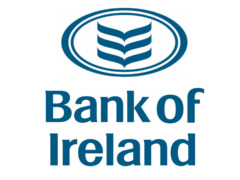
Just over one in 20 Bank of Ireland residential mortgage holders are in arrears.
It was revealed today that 5.6% of its mortgage book is behind in their repayments by 90 days or more.
The news came after Bank of Ireland reported pre-tax losses of €190 million for the 12 months to the end of December.
That was a significant narrowing of losses though compared with the €950 million it lost in 2010.
The bank said that its impairment charges on loans and advances to customers rose to €1.939 billion from €1.859 billion in 2010.
The bank's impairment charge on its residential mortgages increased by €65m from €404m in 2010 to €469m. The bank said this was mainly due to the general economic weakness and affordability issues. It also said the rise in arrears since August appears to have been impacted by the implementation of the new code of conduct on mortgage arrears.
Bank of Ireland said the impairment charge of €893m on its property and construction portfolio for the year rose by €174m compared to a charge of €719m for the year to December 2010. The portfolio amounted to €21 billion by the end of the year.
Bank of Ireland's operating income fell by 27% to €2.1 billion due to the continuing low interest rate environment, intense competition for deposits and a elevated wholesale funding costs and the cost of the state backed guarantee. The bank said it had cut its costs by 8% to €1.65 billion.
Bank of Ireland's chief executive Richie Boucher said the bank sees the rate of increase in mortgage arrears among its customers easing in the coming months before peaking this year. Figures from the Central Bank last week showed that nearly one in seven Irish home loans are not being fully repaid as unemployment remains high and house prices continue to fall.
Bank of Ireland bettered the industry average with its proportion of owner occupier loans in arrears for more than 90 days rising to 5.6% from 3.7% a year ago but below the sector-wide headline figure of 9.2% reported by the central bank last week.
"We don't anticipate that they have peaked as yet. We think that the ratio of increase will start to ease during 2012 and will peak during 2012," Mr Boucher said.
"The level of arrears is still very high and we need to continue to put a huge amount of effort into managing this part of our book."





